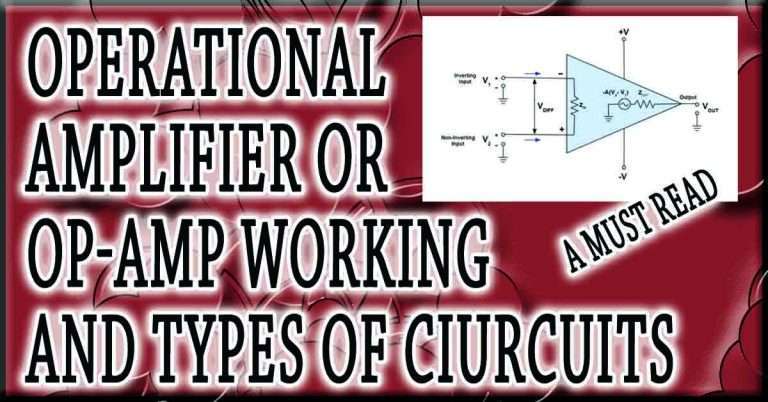Fluke 1507 Insulation Tester Megger Working
The Fluke 1507 insulation tester is a compact, powerful tool widely used in the field of electrical maintenance and troubleshooting. It helps electricians and engineers test insulation resistance in wiring, motors, transformers, and other equipment. Whether you work in residential, commercial, or industrial environments, the Fluke 1507 is a reliable device that ensures electrical systems are safe and efficient.

In this detailed guide, we’ll explore how the Fluke 1507 insulation tester works, its features, applications, and technical specifications. You’ll also learn about proper usage techniques, measurement modes, and safety considerations. Let’s dive into what makes this megger a popular choice for insulation testing worldwide.
What Is the Fluke 1507 Insulation Tester?
The Fluke 1507 insulation tester is a handheld megohmmeter designed for insulation resistance testing. It can output multiple test voltages ranging from 50V to 1000V, allowing users to measure insulation quality on a variety of components and systems. Fluke is a reputable brand known for producing precise, rugged, and user-friendly electrical test instruments.
Unlike basic multimeters, the Fluke 1507 is specialized for detecting insulation breakdowns that could lead to short circuits, electrical fires, or equipment failure. It’s often used during preventive maintenance or after installation of electrical components.
Know More about How to Use Megger BM5200 Insulation Tester 5kV
Key Features of the Fluke 1507 Insulation Tester
The Fluke 1507 comes with a set of features that make it suitable for both field and lab environments. Here’s a quick look:
| Feature | Description |
|---|---|
| Test Voltages | 50V, 100V, 250V, 500V, and 1000V |
| Insulation Resistance Range | 0.01 MΩ to 10 GΩ |
| Live Circuit Detection | Automatically disables test if voltage >30V |
| Auto Discharge | Capacitive voltage is automatically discharged |
| PI and DAR Testing | Measures Polarization Index and Dielectric Absorption Ratio |
| Remote Test Probe | Enables one-handed operation in tight spaces |
| Backlit Display | Easy to read in dark conditions |
| CAT IV Safety Rating | CAT IV 600V and CAT III 1000V rated |
These features make the Fluke 1507 ideal for insulation testing on both low and high voltage systems.
How Does the Fluke 1507 Insulation Tester Work?
To understand how the Fluke 1507 insulation tester works, it’s important to know the basic principle of insulation resistance testing. The tester applies a DC voltage across an insulating material and measures the current that leaks through it. This current, known as leakage current, is then used to calculate resistance in megohms (MΩ).
The formula is simple:
R = V / I
Where R is resistance, V is applied voltage, and I is leakage current.
A high insulation resistance means the material is good. A low reading indicates degradation, moisture, or contamination. The Fluke 1507 allows selection of test voltages so that materials can be tested according to their rated voltage class.
Know More about Best Megger Insulation Tester for Industrial Motors
Using the Fluke 1507 Insulation Tester
Before using the Fluke 1507, ensure the equipment under test is de-energized and properly isolated. The device is designed to detect live circuits and alert the user if voltage above 30V is present.
Here’s how to use the Fluke 1507 insulation tester step-by-step:
- Turn on the device.
- Connect the test leads to the equipment insulation points (e.g., motor winding and ground).
- Select test voltage using the rotary knob. Choose a voltage appropriate for the equipment.
- Press the TEST button or use the remote test probe.
- Read the resistance value on the digital display.
- Observe PI or DAR ratios if you’re running long-duration tests.
- Disconnect and allow auto-discharge before handling leads.
The instrument’s internal safety mechanism discharges stored energy automatically after the test. This is particularly important when testing capacitive equipment such as large motors.
Understanding PI and DAR Functions in Fluke 1507
The Fluke 1507 insulation tester also supports PI (Polarization Index) and DAR (Dielectric Absorption Ratio) tests. These tests provide deeper insights into insulation condition, especially in high-voltage and aging equipment.
- PI Test: This is the ratio of the 10-minute insulation resistance to the 1-minute resistance. A PI value greater than 2.0 is generally considered good.
- DAR Test: This is the ratio of the 1-minute resistance to the 30-second resistance. A DAR greater than 1.25 indicates healthy insulation.
These tests are useful because they consider the behavior of insulation over time rather than just one moment. This helps detect moisture ingress or thermal aging.
Know More about How to Use Megger Insulation Tester MIT320
Common Applications of the Fluke 1507 Insulation Tester
The Fluke 1507 is widely used across industries. Its compact size and multifunction capability make it suitable for:
- Testing electric motors
- Checking transformer windings
- Inspecting control panels
- Verifying cable insulation
- Maintaining circuit breakers and switchgear
- Periodic maintenance of generators
Electricians and plant technicians often rely on it for both commissioning and routine checks.
Technical Specifications of the Fluke 1507
Understanding the technical capabilities of the Fluke 1507 insulation tester helps in selecting the right tool for your job. Here’s a detailed breakdown:
| Specification | Value |
|---|---|
| Test Voltages | 50V, 100V, 250V, 500V, 1000V |
| Insulation Resistance | Up to 10 GΩ |
| Voltage Detection | >30V AC/DC |
| Accuracy | ±(4% + 2 digits) |
| Safety Ratings | CAT IV 600V / CAT III 1000V |
| Battery Life | Over 1000 tests |
| Weight | 1.3 lbs (approx) |
| Operating Temperature | 0°C to 50°C |
The instrument is built to operate in rugged conditions and deliver accurate, repeatable results.
Know More about What is Difference Between Megger and Insulation Tester
Best Practices for Insulation Testing with Fluke 1507
To get the most out of your Fluke 1507 insulation tester, follow these best practices:
- Always check for stored voltage before and after testing.
- Avoid testing in wet or humid environments.
- Ensure test leads are clean and undamaged.
- Test similar equipment under similar conditions for comparative analysis.
- Record readings regularly to monitor insulation degradation over time.
Periodic maintenance using insulation testing helps prevent unplanned shutdowns, electrical faults, and costly repairs.
Why Choose the Fluke 1507 Insulation Tester?
What sets the Fluke 1507 apart is its blend of simplicity and advanced functionality. It’s compact, easy to carry, and packed with features typically found in more expensive models. It supports multiple voltage levels, automatic discharge, and one-handed operation using the remote probe.
Moreover, its rugged design and high safety rating (CAT IV) make it suitable for a wide range of field applications. If you’re serious about maintaining electrical systems safely, the Fluke 1507 is a solid investment.
Know More about Best Megger Insulation Tester 10kV
Conclusion
The Fluke 1507 insulation tester is more than just a basic megger. It’s a reliable diagnostic tool that offers precision, safety, and efficiency for electrical professionals. With its broad voltage range, advanced testing capabilities like PI and DAR, and durable construction, it stands out as a must-have for insulation resistance testing.
Follow Us on Social:
Subscribe our Newsletter on Electrical Insights for latest updates from Electrical Engineering Hub
#Fluke1507, #InsulationTester, #MeggerTesting, #ElectricalTesting, #InsulationResistance, #FlukeTools, #ElectricalSafety, #TesterWorking, #InsulationCheck, #MeggerTool, #FlukeInsulationTester, #ElectriciansTool, #HVTesting, #PreventiveMaintenance, #FlukeMegger


